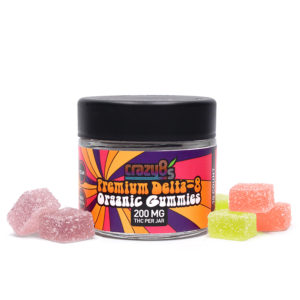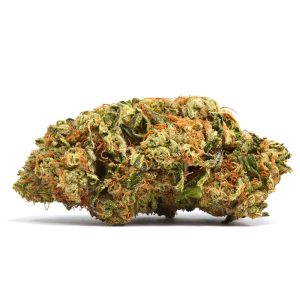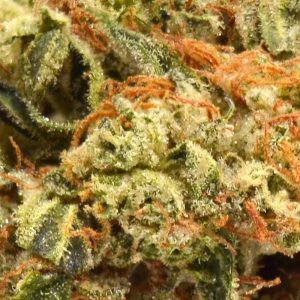The rise of Delta-8 THC had North Carolinians buzzing. Now, the newest hemp derivative Delta-10 THC is overtaking the marketplace. Products containing this cannabinoid are spreading in nearly every hemp CBD shop in this state. But is D-10 THC legal? If so, where to buy it?
Is It Legal: North Carolina Delta-10 THC Laws
The short and simple answer is
YES
Delta-10 THC is LEGAL in North Carolina.
What Is Delta-10 THC?
Delta-10 THC is a minor hemp cannabinoid that’s part of the large cannabinoid family of the hemp plant. Unlike cannabidiol (CBD), Delta-9 THC, and cannabigerol (CBG), which naturally occur in higher concentrations and can be extracted organically, Delta-10 THC is present in extremely low concentrations in the plant’s early stages.
Because this cannabinoid is found in trace amounts in the hemp plant, chemists use hemp-derived cannabidiol (CBD) to convert it into Delta-10 THC. The manufacturing process of this compound is long and requires knowledge and experience primarily to avoid getting toxic side products into the extract. So, if you’re down to trying something new, you should get informed on where to get top-shelf D-10 THC.
Buy Delta-10 THC in North Carolina NOW
You can probably find many D-10 THC products across CBD shops, smoke shops, and even gas stations and convenience stores in North Carolina. But, there are a few questions you need to ask yourself before buying. Are they pure and of good quality? Most importantly, do they even contain any D-10 THC?
Creating D-10 THC is a complex process that involves a lot of heat that may trigger a surge of unknown and harmful side products. The conversion of D-10 THC happens when chemists alter the cannabidiol (CBD) molecule and convert it into D-10 THC while using unique processes that keep the extract pure.
That’s why we emphasize the importance of knowing where your products come from. Delta-10 THC is a new cannabinoid discovery, so you want to know if what you’re getting is genuine, lab-tested, and safe.
Mr. Hemp Flower is an already established brand in the space of high-potency, top-shelf hemp cannabinoid products. Our brand has thousands of positive reviews for Delta-8 THC, cannabidiol (CBD), cannabigerol (CBG), and now Delta-10 THC items. Like every product of ours, the D-10 we offer comes with a lab report that shows the potency levels.
Looking at reviews is key because reading other people’s experiences indicates that the products you’re buying can meet your needs. Also, we’re open for questions. If you want to know more about the product, don’t hesitate to reach out.
Continued, Is Delta-10 THC Legal in North Carolina?
North Carolina doesn’t explicitly prohibit the distribution and sale of D-10 THC.
But, the relationship between state laws and this cannabinoid is complicated. In 2019, the Old North State amended sections within their Controlled Substances Act concerning hemp. In it, it exempted hemp tetrahydrocannabinols from the definition of marijuana, stating that “tetrahydrocannabinols in hemp products or hemp extracts are not Schedule VI controlled substances.”
This means that all hemp tetrahydrocannabinols are legal in North Carolina.
So, the legality of D-10 THC in North Carolina depends on whether this cannabinoid is considered synthetically derived. Like in most states, synthetic cannabinoids from marijuana have been banned.
Experts are heavily debating the legality of these newly developed compounds. They expect to find a solution in the nuances of definitions of specific terms. What does it mean for a compound to be considered synthetic? What does it mean for a cannabinoid to be derived from hemp? So. many. questions.
The North Carolina Department of Agriculture & Consumer Services discusses the same issue. They state that the legality (in this case) of Delta-8 THC products in the state depends on whether this compound comes from hemp or marijuana.
If derived from hemp, the cannabinoid is legal under state and federal law.
That is IF the compound is not considered “synthetic,” which is debatable until the government decides to either ban or regulate it properly. Until we get a clarification on these newly synthesized hemp tetrahydrocannabinols that most states haven’t regulated, their legality remains in limbo.
North Carolina legalized the hemp plant and allowed the sale of CBD products for specific conditions with Senate Bill 313 in 2015. Since then, the state has amended the bill and its Controlled Substances Act. Marijuana and tetrahydrocannabinols are controlled substances in North Carolina, and the state doesn’t have a medical marijuana program.
Delta-10 THC and Federal Law
The legality of D-10 THC on a federal level is an even greater subject of debate than the legality of Delta-8 THC.
This compound exists in the grayest area of hemp laws. As a mildly psychoactive compound derived from hemp, it should technically fall under the 2018 Farm Bill — as Delta-8 THC does. The bill legalized hemp and its derivatives. So, vendors can sell hemp products in all 50 states as long as they don’t contain more than 0.3% THC.
The thing is, unlike Delta-8, chemists process D-10 more heavily. They produce it by rearranging the molecules of other naturally derived cannabinoids like CBD or Delta-9 THC. Many scientists experiment with food-grade catalysts to create this compound but admit that some produce it using harsh chemicals.
This could classify Delta-10 THC as synthetic, which is prohibited under federal law. The reason why it’s in a grey area is because it’s still derived from a natural hemp compound, cannabidiol (CBD).
But that’s also questionable, and here’s why. In its 2020 Interim Final Rule, the Drug Enforcement Administration (DEA) specifically added that when it comes to “synthetically derived tetrahydrocannabinols,” the levels of Delta-9 THC contained in a product infused with a synthetic cannabinoid doesn’t have play a role in determining its legality. Why? Because all synthetically derived tetrahydrocannabinols are illegal and the Hemp Farming Act didn’t impact the legality of synthetically-derived tetrahydrocannabinols.
For now, there are no laws that prohibit the sale and distribution of Delta-10 THC products. So, its legality is in limbo. Legislators can classify this cannabinoid as synthetic THC and ban it once it grows in popularity.
Bottom line
If you’re interested in buying Delta-10 THC products in North Carolina, you should know that (for now) the state hasn’t banned the distribution and sale of this compound. Before buying, North Carolinians should check the laws and always go with a reliable manufacturer.

FAQ’s
Is Delta 10 legal to buy in North Carolina?
Delta-10 is legal to buy in the Old North State. North Carolina doesn’t explicitly prohibit the sale of products containing this cannabinoid.
Where to buy Delta 10 in North Carolina?
Always make sure you’re buying D-10 from a reliable supplier. At Mr. Hemp Flower, you can buy directly from the maker. Our products are lab-tested and come with a verified lab report.
Can I order Delta 10 online legally?
Yes, you can order D-10 products online legally. As always, make sure you check the origin of the seller’s product, lab results, and reliability.
Is Delta 10 THC legal in all 50 states?
No. More than a dozen states had expressly banned or restricted products containing Delta-8 THC and similarly derived tetrahydrocannabinols, like Delta-10 THC.
Read our legal disclaimer HERE. While we try to stay as up-to-date as possible on all state laws, you should do your own due diligence and work with a legal professional to ensure you are operating legally in your state or territory at all times.





